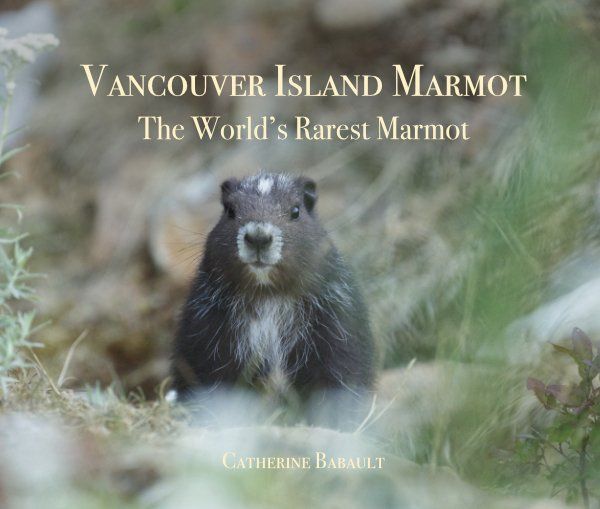A Vancouver Island nature photographer’s love of marmots will see a new photo album launched to draw awareness to the endangered species.
Catherine Babault of the Comox Valley will be launching her latest photo album, Vancouver Island Marmot, The World’s Rarest Marmot, on Dec. 21.
It will feature 89 photos of the Vancouver Island marmot, along with texts from herself, the Marmot Recovery Foundation, Toronto and Calgary Zoos and Jamie Gorrell Ph.D. from Vancouver Island University (VIU).
Having released other photo albums in the past, Babault says she learned about the Vancouver Island marmots after moving to the area a little over 10 years ago.
When she learned about its status as an endangered species, she felt a voice or an image, needed to be provided for the animal.
“So when I learned about that I thought that everybody should know about it and as a professional wildlife photographer I almost felt like it was my responsibility to put a book together and tell everybody what is going on,” Babault said.
The marmot is in a better place than it was a few decades ago, according to Jamie Gorrell Ph.D., a biology professor at VIU. Gorrell says there are only around 250 Vancouver Island marmots, and they are an endemic species, meaning they are not found anywhere else in the world.
He says the marmots have made a significant recovery, but still have a long way to go.
“What we do know is that in the late 80s and early 90s the marmot population started to decline, it kept declining throughout the mid to late 90s, and then in ‘97 it kept going down, year after year,” said Gorrell. “In ‘97, marmots started being collected from the field and placed in captivity to ensure the species did not go extinct.
“By 2003, we had captive, bred marmots that were ready for release and we started putting them back out in the wild.”
Gorrell said they estimate that there were less than 30 marmots left in the wild in 2003. The population increase is quite a success story, but 250 individuals are not enough.
He adds these marmots are critical to the ecosystem for a few reasons beyond their furry appearance, including the Island’s lower diversity.
“They’re so darn cute,” said Gorrell. “In all seriousness, Vancouver Island only has about half of the mammals that exist in the rest of B.C., so we already have a lower number of species that support our ecosystem.”
This includes the mountains, as the Island does not have mountain goats or big horn sheep. Gorrell adds this makes protecting them all the more important.
Gorrell and Babault say the best thing to do to support the marmots are to support the Marmot Recovery Foundation and other partners to help with their research.
Gorrell asks you to report any sightings of marmots in the alpine to the foundation, as they are always looking to find new colonies in different areas.
Copies of the photo album can be found on Babault’s website when they go on sale.




